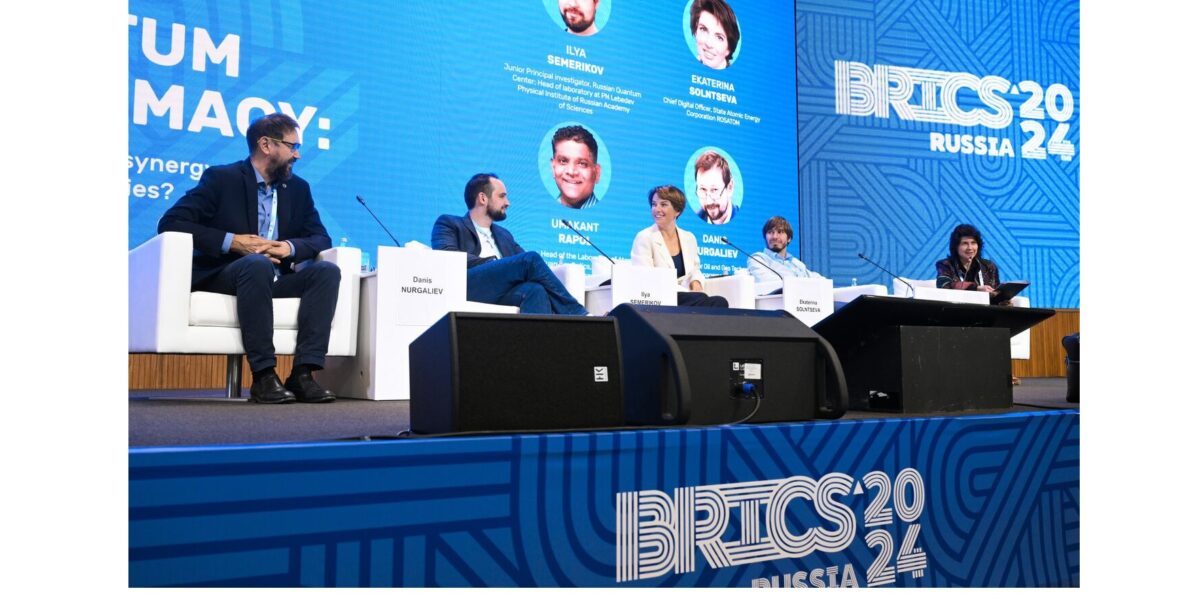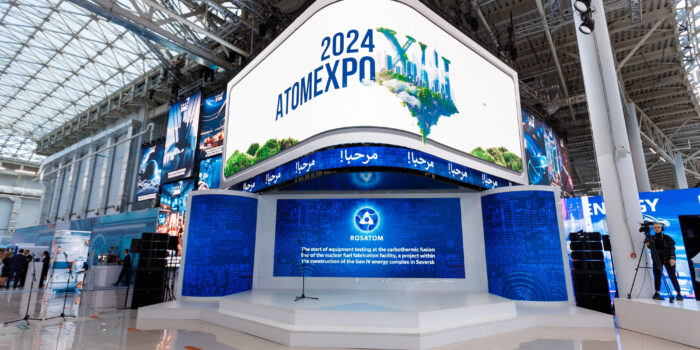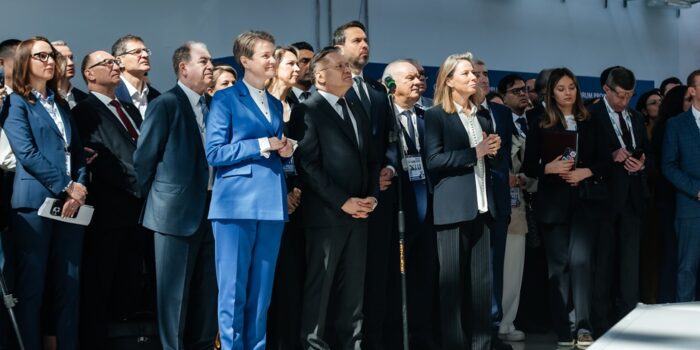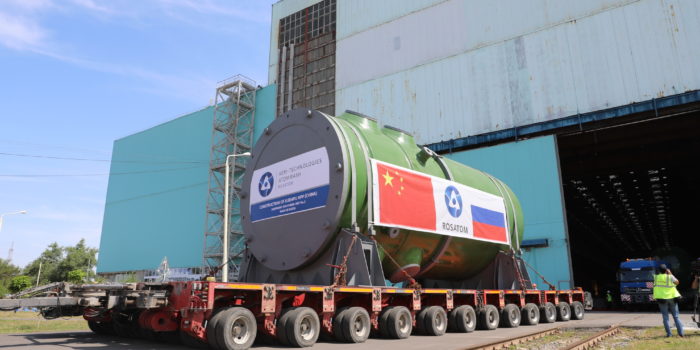At the Digital BRICS Forum, held on September 26-27, 2024 in Innopolis, Republic of Tatarstan, representatives of Rosatom spoke about the initiative to create a University of Future Technologies in Russia. The concept was discussed at the Rosatom session “Quantum Supremacy: Solo Race or BRICS Synergy?”, and was previously presented in detail during the meeting of the Ministers of Communications of the BRICS member countries, held during the forum.
University of Future Technologies is an international research and educational center in the field of quantum and related technologies, as well as an integrator of future technologies, including biomedical, neurotechnologies, and new materials. The creation of the university was supported by the President of Russia and was included in the list of orders issued following the first Future Technologies Forum in July 2023. State Corporation Rosatom will co-found the University, along with the Moscow Government, the Russian Quantum Center and other partner organizations.
“We expect that the University of Future Technologies will become a platform for scientific and technical dialogue between interested countries and will allow us to form a special language of scientific cooperation – to fulfil the potential of talented individuals and to ensure prosperity of different countries. Rosatom has a substantial expertise in launching new scientific and technological areas; together with our partners we will continue this work within the University of Future Technologies,” – said Ekaterina Solntseva, Director for digitalization of Rosatom.
Reference
University of Future Technologies is an educational center with the purpose to develop promising technologies aimed at improving the quality of the economy, social environment and habitat for human life, as well as ensuring technological sovereignty and state security. The project will provide for equal access of countries to promising technologies. Key objectives include fully meeting the country’s needs for highly qualified specialists for the emerging Russian quantum technology industry by 2030. By this date, it is planned to open about 10 educational programs in quantum computing and technologies, quantum sensors, quantum communications, new materials, and biotechnologies. In 2025, common educational programs and dual diplomas will be opened for BRICS countries, teaching advanced developments in promising technologies.
The creation of an educational institution will allow us to concentrate research infrastructure, scientific and teaching competencies for the development of future technologies. It is planned that its “home” base will be the Skolkovo innovation center, where not only the main scientific and educational infrastructure on quantum technologies is currently concentrated, but also high-tech startups and businesses, both ready to implement new technologies.
The university will develop based on impressive results of Rosatom and the Russian Quantum Center, achieved as part of the implementation of the “Quantum Computing” roadmap: more than 30 Russian scientific laboratories and groups are united into a single scientific and technological ecosystem, and more than 50 foreign laboratories are ready to join it. The scientific teams include more than 500 Russian international researchers with an average age of 35 years. Scientific and industrial groundwork has been laid in the creation of quantum computers on four priority platforms: superconductors, ions, neutral atoms and photons. Educational projects aimed at popularization and professional training in the field of quantum technologies have reached more than 5 million Russian students and schoolchildren.





